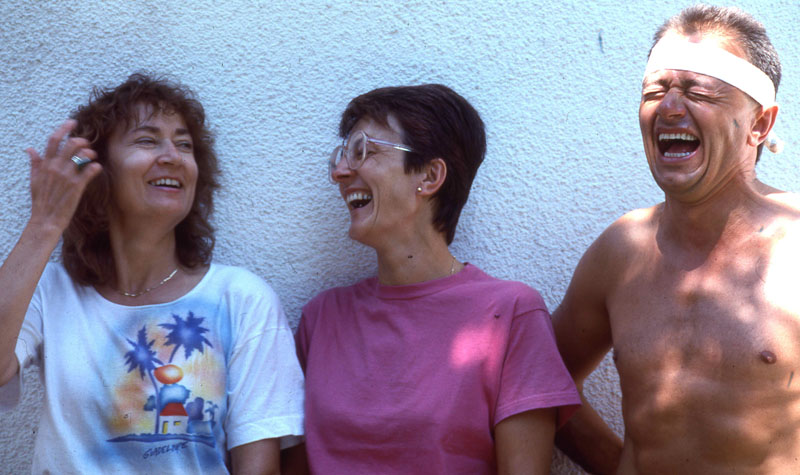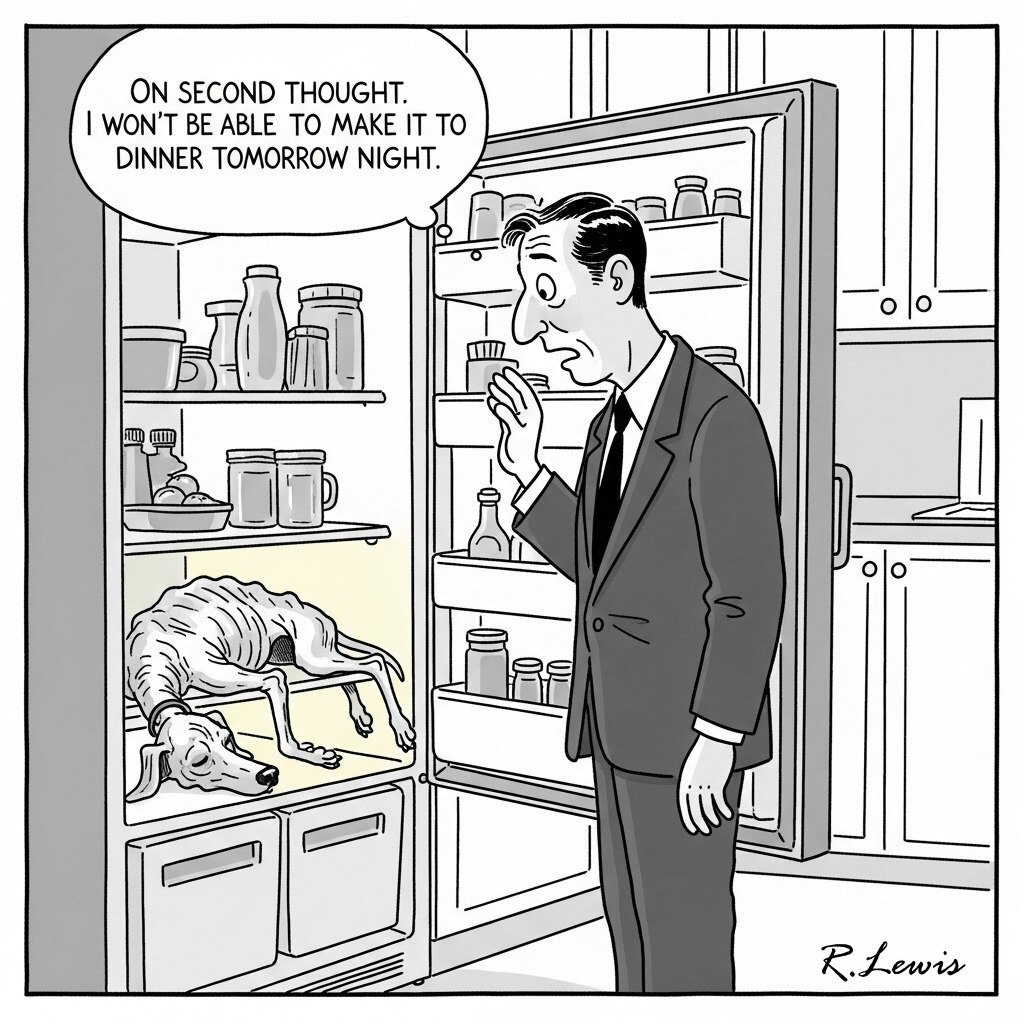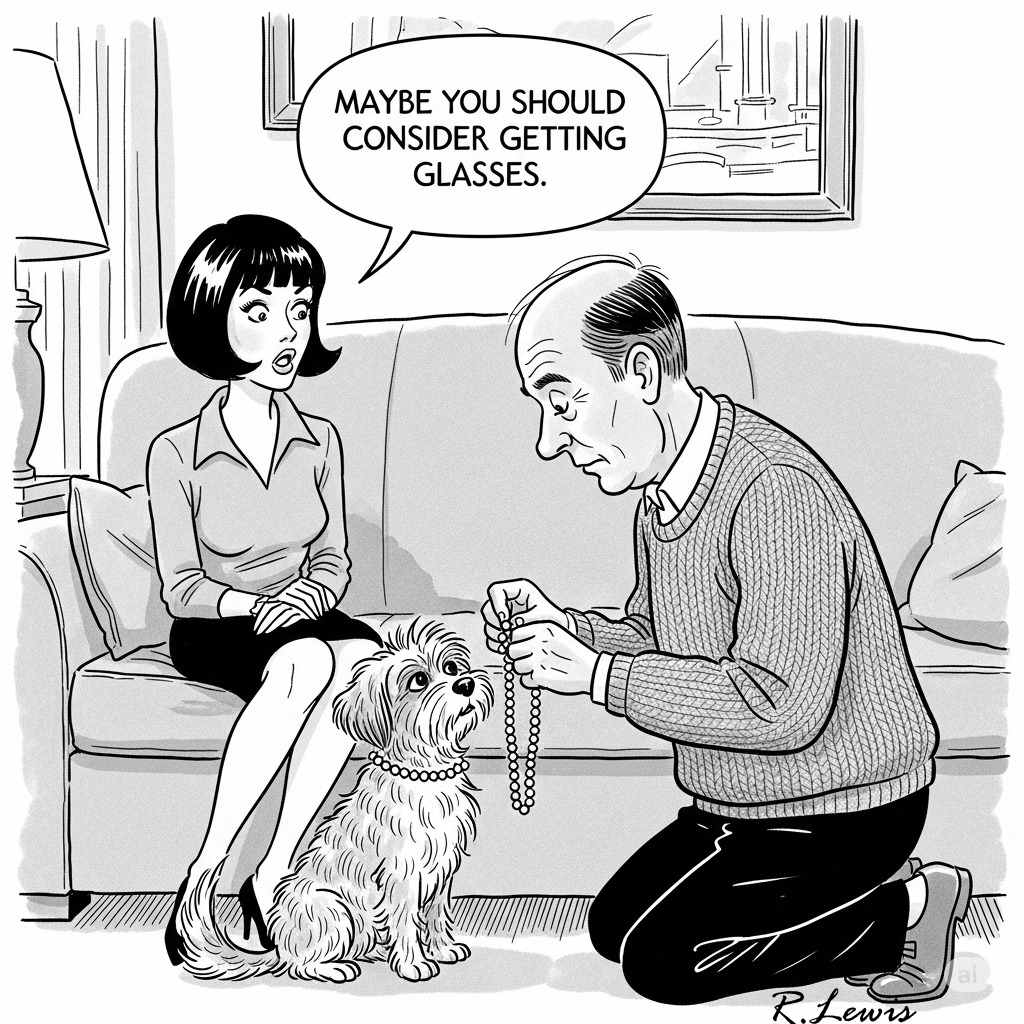Laughing
feels good. The opposite of laughing is crying. No one wants
to cry. Everyone wants to laugh. We are a species wired
to laugh, to want to feel good. Keeping ourselves alive
feels good (eating, quenching thirst), sex feels good, succeeding
in life feels good.
 Feeling
good from laughter releases endorphins, boosts the immune
system. The slave who could laugh in the face of despair,
who learned to live and keep himself wholly in the present
indicative survived -- and procreated. It was his gift.
Woe to the man who cannot partake of the “the laughter
of the gods.”
Feeling
good from laughter releases endorphins, boosts the immune
system. The slave who could laugh in the face of despair,
who learned to live and keep himself wholly in the present
indicative survived -- and procreated. It was his gift.
Woe to the man who cannot partake of the “the laughter
of the gods.”
Natural
selection likes the funny guy, and all those he makes laugh.
In moderation, wanting to feel good is a healthy impulse.
But we all know, if only anecdotally, that wanting to feel
good has gotten too many into big trouble. We spend hundreds
of millions of dollars – sometimes at the expense
of the necessities of life (food, rent, our children) --
in pursuit of feeling good. When feeling good becomes its
own terminus, it turns negative, destructive. With the blessings
of nature, feeling good is meant to be the means to the
end of optimal health.
Feeling
good is an outcome that seamlessly integrates material and
psychological well-being: you can’t have one without the other, a fundamental truth that certain
cultures have grasped better than others. All the having
in the world cannot relieve the wholly unnatural and unhappy
state of being alone in the world. Loneliness, stress, low
self-esteem are inimical to well-being. The deeper the unhappiness
deficit, the need to feel good intensifies and disproportionately
preoccupies our time and capital. Las Vegas, whose mega-casinos
offer mother-lodes of thrills and pleasures -- from gambling,
to circus acts, main event boxing, live music and stand-up
comedy -- is where the haves go to confess that something
isn’t quite alright, and are convinced “the
unexamined life” is the cure.
one without the other, a fundamental truth that certain
cultures have grasped better than others. All the having
in the world cannot relieve the wholly unnatural and unhappy
state of being alone in the world. Loneliness, stress, low
self-esteem are inimical to well-being. The deeper the unhappiness
deficit, the need to feel good intensifies and disproportionately
preoccupies our time and capital. Las Vegas, whose mega-casinos
offer mother-lodes of thrills and pleasures -- from gambling,
to circus acts, main event boxing, live music and stand-up
comedy -- is where the haves go to confess that something
isn’t quite alright, and are convinced “the
unexamined life” is the cure.
Should
the success or state of the nation be measured by its GDP
or the time and capital spent feeling good? As a percentage
of GDP, we are spending more and more on drugs and alcohol
compared to 100 years ago, and that doesn’t include
the vast sums that have been spent on the laughable (losing)
war on drugs. We’re also spending a lot more on comedy,
gathering around the comic instead of the primeval fire.
As a nation, we have been very inventive in creating diversions
that cater to our growing need to feel good. Our collective,
no-class-left-behind obsession with feeling good is the
nation’s declaration that not all is as well as its
material wealth would have us believe.
Among
the surest and quickest ways to feel good is through laughter.
Flick on the TV and there are any number of specialty channels
dedicated to keep us laughing 24/7. Old comedy shows from
the 1960s and 1970s are in vogue. And for a more intense
and communal experience there are comedy clubs everywhere
featuring over the course of an evening a parade of comedians.
The circus that used to travel from one town to the next
has been replaced by the comedy circuit, as more and more
of us are willing to pay a pretty penny for a laugh.
 What
does the increasing demand for and proliferation of comedy
tell us about our basic needs and collective values? Since
laughing feels good and ranks high among the past times
we default to in our fugitive quest for well-being, are
there reasonable grounds to compare the laughing addict,
someone who spends a disproportionate part of his day tuned
into comedy, to the druggie who has to free-base cocaine
all day long to get from one day to the next?
What
does the increasing demand for and proliferation of comedy
tell us about our basic needs and collective values? Since
laughing feels good and ranks high among the past times
we default to in our fugitive quest for well-being, are
there reasonable grounds to compare the laughing addict,
someone who spends a disproportionate part of his day tuned
into comedy, to the druggie who has to free-base cocaine
all day long to get from one day to the next?
Laughter
is a potent drug because it engages both the mind and body.
Once you’ve understood the joke, the body is handsomely
rewarded. From the Encyclopedia Britannica describing
laugher:
Fifteen
facial muscles contract and stimulation of the zygomatic
major muscle (the main lifting mechanism of your upper lip)
occurs. Meanwhile, the respiratory system is upset by the
epiglottis half-closing the larynx, so that air intake occurs
irregularly, making you gasp. In extreme circumstances,
the tear ducts are activated, so that while the mouth is
opening and closing and the struggle for oxygen intake continues,
the face becomes moist and often red (or purple). The noises
that usually accompany this bizarre behaviour range from
sedate giggles to boisterous guffaws.
As
to the origins of laughter, ethologists report that some
of the higher apes are capable of laughter (doubtlessly
because they couldn’t foresee what they would become)
and the first Homo sapiens were endowed with the capacity
to laugh.
For
most of our history, we were responsible for our own laughter;
it was created spontaneously as it was needed. Scripting
and scheduling laughter is a very recent phenomenon, the
first effect of a growing and unprecedented deficit in psychological
and social well-being. If in the past we needed less laughter
in our lives, what has changed between then and now?
It
is as self-evident as the clown "who was only your
fool for a while" that the conditions of life are such
that we are unable to supply our basic laughter needs, or
we are less capable of producing laugher because we don’t
have enough time and/or the mind has been dulled by an over-reliance
on technology doing the things we used to do. Either way,
we now look to and depend on laughter specialists to supply
our needs.
Despite
the spectacular wealth generated by human ingenuity, ‘having’
doesn’t necessarily translate into psychological or
spiritual having, which means the haves still haven’t
grasped what constitutes real as opposed to apparent happiness.
We’ve been sold hook-line-and-sinker on the consumer
construct of happiness, and to such an extent that even
comedy is now regarded as another item on a purchase list
(God forbid bucket list). However, our unhappiness persists,
despite the best laid plans of the buy-now pay-later template
and being born into the exponentials of plenty.
Canadian
philosopher Charles Taylor coined the term “the malaise
of modernity,” a condition which I propose is significantly
related to our alienation, our voluntary expulsion from
the tribe or community? We are no longer a united people,
but a nation of exiliacs for whom Facebook has become the
living room of choice. For the first time ever, more than
50% of Canadian adults live alone. Is there a relationship
between living alone and our pre-occupation with pets (pet-ophilia)
and our quasi addiction to comedy?
“When
two people are laughing it is certain misfortune has befallen
a third,” says the saw. But what if there isn’t
a second and third person? Without the other, the joke’s
on who? It’s on you. Small wonder television comedy
dominates prime time television. And if that’s not
enough, most mid-sized cities now feature a comedy club
or two, and many of our largest cities program lengthy comedy
festivals into their rites of summer. If you’re looking
for a restorative, shared communal experience, there’s
no better place than the comedy club to drop anchor.
From
the court jester to the present day comedian, the conditions
of life have been such that there has always been a need
for laughter, but it would take two centuries (from the
Industrial Revolution to the 1960s), and a growing unhappines
(laughter) deficit for an increasingly unhappy population
to finally begin to question the bloated claims of materialism.
The counter culture or hippie movement proposed an alternative
set of values. Riding a drug-fuelled wave of euphoria and
idealism, the hippies took their chances on the trifecta
of “turn on, tune in, drop out.” Many of them,
following the sitar drones of George Harrison to their ghatly
source, looked to the East to fulfill their spiritual needs.
But alas, Zen and the Upanishads didn’t pay the rent
and the movement was eventually compromised by human nature
-- temporarily down but never out. We soberly note that
Envy, Pride and Avarice have survived the hundreds of ‘isms’
that have been devised to disable them.
As
the hippie movement -- a fatuous last stand against the
juggernaut of corporatism – petered out, the demand
for comedy dramatically increased and continues unabated.
But it is for more than ‘just for laughs’ that
many of us are dedicating increasingly larger segments of
our day to comedy. Our freedoms, especially First Amendment
freedoms are under siege, in part because the Tsars of political
correctness (PC) enjoy popular support at the ballot box.
Never before have we been so hamstrung by PC. You can’t
open your mouth without offending someone; and if you argue
against victims’ rights you’re either a racist,
homophobe or sexist. The comedy club is the only public
place where PC hasn’t made any inroads. In the club,
nothing is sacred, no joke too offensive or dirty; it is
where the people in their marvelous diversity come to air
out their hang-ups and civilizational discontents with a
grin-and-bear-it as wide as the world, and the only thing
hurting are them bellies full of laughter, and the only
angry man is the guy who can’t get a ticket.
Laughter
(comedy) is healing, it is therapeutic; it allows us to
reconnect with our authentic, essential selves. In its funny
way, it fills a void in our spiritual life that left unfulfilled
leaves us vulnerable to an endless procession of quick fixes
and their dubious claims. And finally, laughter allows us
to indulge human nature so we can more easily recognize
it to better understand and manage it.
Suffice
to say the increasing demand for laughter in our lives is
no laughing matter.
If
you've made it to the end of this essay, you deserve a laugh.
Arthur Koestler, from The Act of Creation, explains
that all humour derives from the "bisociation of unlike
matrices."